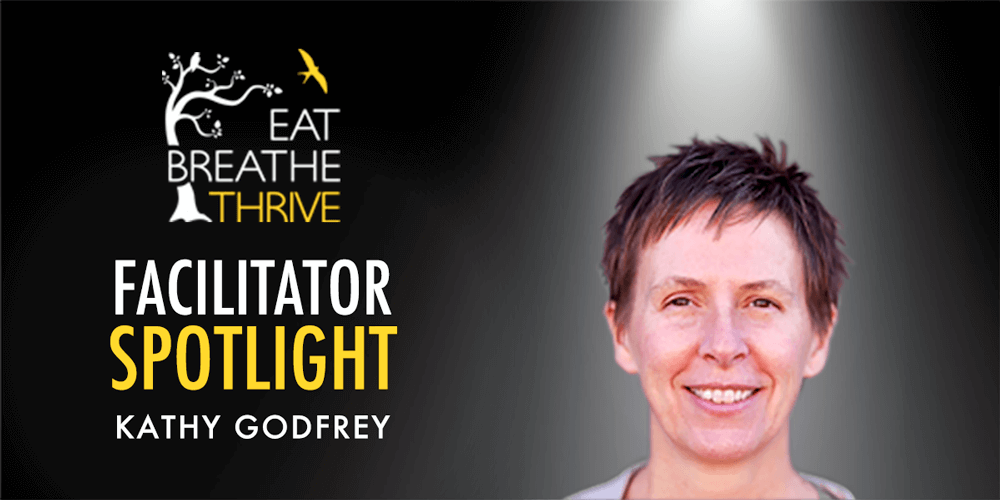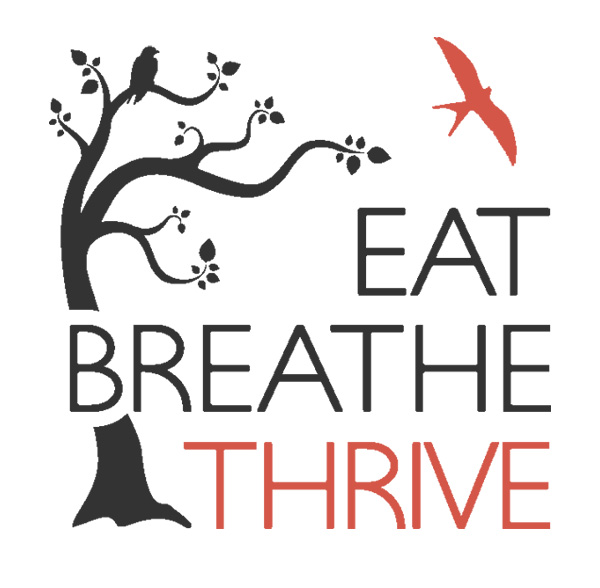Eat Breathe Thrive Facilitator Spotlight: Kathy Godfrey

Our Facilitator Spotlight is an ongoing series, aimed at shining a light on our facilitators, their programs, and their experience of facilitation.
First up: We speak to Kathy Godfrey, a recovery group facilitator, yoga teacher, writer, and spiritual coach in Asheville, NC.
Stories are powerful! Give us your origin story with Eat Breathe Thrive. What made you want to become a facilitator?
In January 2016, Chelsea offered Module One at the recovery center where I facilitate groups. As she led us through the Eat Breathe Thrive curriculum, I realized that it efficiently presented the main elements of my own body-healing experience. Having a limited time to help clients in groups, I recognized Eat Breathe Thrive as a powerful and effective tool to support clients with falling in love with themselves, including the body.
Eat Breathe Thrive presents the main elements of my own body-healing experience.
What surprised you most about facilitation? What did you not expect?
By far, the most popular aspect of the Eat Breathe Thrive program is touch support. Most of the women participating have some kind of trauma in their history that has terrified them out of their bodies or driven them deep inside away from physical sensation and vulnerability. So I thought they would mostly be afraid of and resistant to touch, but that turned out to be wildly false. Many participants have cried when receiving touch and reported that it was a new experience to feel touch with no agenda.
Many participants have reported that it's a new experience to feel touch with no agenda.
What makes the community you serve unique?
The community I currently serve are clients with diagnosed eating disorders and/or substance use disorders, although I don't see this as making them unique. Most humans blame their body for some sort of shortcoming. It's a fundamental misunderstanding, related to the underlying belief that we are not quite good enough. The body, the part of us we can see is an easy scapegoat, and our culture supports this assignment of blame.
Most humans have an underlying belief that they are not good enough. The body is an easy scapegoat, and our culture supports this assignment of blame.
If you had to summarise what you offer as a facilitator in a few words or one short phrase, what would it be?
An invitation to experience self-unity, freedom.





